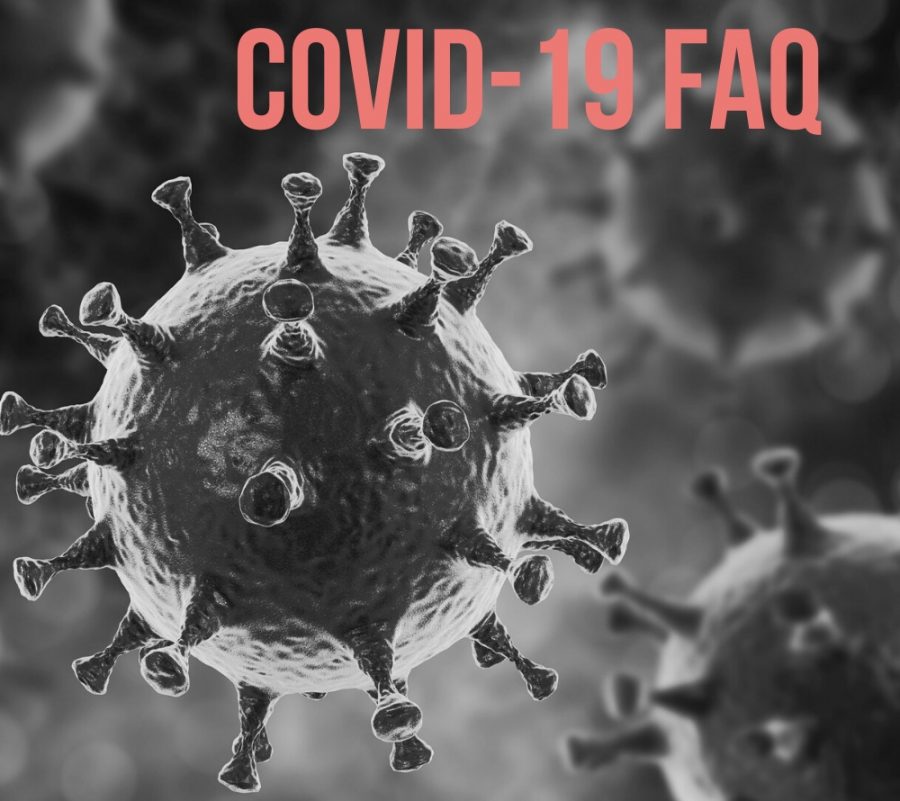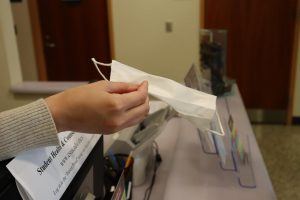FAQ: How do I know if I have COVID-19? What steps should I take to prevent the spread?
March 18, 2020
With many people releasing information regarding the coronavirus outbreak, it has become difficult for the public to break down the facts.
The State Hornet compiled some explanations for hard-to-answer questions on the COVID-19 pandemic, provided by the Centers for Disease Control and Prevention and other experts.
Question: What is COVID-19 and how is it different from the coronavirus?
Answer: There are many types of human coronaviruses including some that commonly cause mild upper-respiratory tract illnesses. According to the CDC, COVID-19 is a new disease, caused by a new coronavirus that has not previously been seen in humans.
Q: How is COVID-19 transmitted?
A: Since COVID-19 is a respiratory virus, it is spread through fluid from the nose and mouth that can be emitted through coughing, sneezing and talking, according to Dr. Megan Murray, an infectious disease specialist at Harvard. It has not been disproven to spread through an “airborne route,” which is when a person breathes in the virus that’s in the air. The virus also may be transmitted through respiratory droplets that come from the mouth and nose that land on objects that people touch.
Q: What are the symptoms of COVID-19?
A: The symptoms of COVID-19 appear two to 14 days after exposure and usually include cough, fever and shortness of breath. The symptoms are often mild but can become dangerous for elders and individuals with chronic diseases. Susceptible individuals can develop symptoms of pneumonia and respiratory failure, according to the CDC.
Q: How are the symptoms of COVID-19 different from the flu and allergies?
A: Allergy symptoms rarely extend beyond nasal congestion, itchy eyes and sneezing. People can compare their allergy symptoms with those of years before. For further verification, individuals can also check the pollen count in their area. Cold and mild flu symptoms resolve themselves with rest, fluids and over-the-counter medications.
Q: Where do you go if you suspect you have the coronavirus or have come across someone with it?
A: Sacramento State has suggested self-isolating and reaching out to health care providers for further instruction.
If you are feeling sick but unsure, the CDC suggests to stay home and avoid public areas as well as separation from others in the home.
Q: What is mitigation? How will mitigation slow down the spread of coronavirus?
A: Mitigation is the effort to reduce loss of life and property by lessening the impact of disasters, according to the Federal Emergency Management Agency. The CDC’s goal of mitigation is to slow down the transmission of the disease to protect those who are at a higher risk (individuals of old age or with underlying health conditions), as well as health care professionals and those whose jobs are essential. This “flattens the curve.”
Q: What does “flattening the curve” mean?
A: “Flattening the curve,” signifies the potential success of social distancing measures to prevent surges in illness such as COVID-19, that could overwhelm health care systems.
Q: When would a vaccine be available?
A: The National Institute for Allergy and Infectious Disease, is currently working on clinical trials of a vaccine, but estimated that this process would take at least one year to complete and that a commercial vaccine would not be available until after that.
Q: What does social distancing mean? How is it different from a quarantine?
A: Social distancing is avoiding congregated settings such as schools, offices or large gatherings. To quarantine is to separate and restrict the movements of individuals who may have been exposed to an infectious case so that they do not infect others during that period.
On Sunday, California Governor Gavin Newsom set guidelines for all nightclubs, bars and pubs to close in an effort to mitigate COVID-19 and further efforts of social distancing throughout the state. Restaurants will remain open but are instructed to limit the amount of people allowed in the restaurant by half. Newsom also insisted that those of ages 65 and older as well as those with chronic diseases stay isolated.
Q: Does this mean I should not travel by plane?
A: The CDC discourages traveling by plane if you are at a higher risk of exposure of COVID-19. Traveling by plane could increase chances of exposure to COVID-19 because airports are crowded areas. Those in regular contact with people who are at a higher risk should reconsider traveling by plane.
Q: Will it end by the summer?
A: At this time, it is not known whether or not weather and temperature impact the spread of COVID-19 according to the CDC.
Q: How can you manage stress and anxiety around COVID-19?
A: Individuals who have pre-existing mental health conditions should continue with their treatment. The CDC recommends the public to cope with stress by using tactics such as:
- Taking breaks from watching, reading, or listening to news stories, including social media. Take care of your body. Take deep breaths, stretch, or meditate. Try to eat healthy, well-balanced meals, exercise regularly, get plenty of sleep and avoid alcohol and drugs.
- Try to do some other activities you enjoy.
- Talk with people you trust about your concerns and how you are feeling.
Q: What should we do now?
A: The CDC encourages individuals to work as a community to limit the spread of the disease, this includes:
- Washing your hands. Be as hygienic as possible.
- Avoid people who are coughing or obviously ill.
- Avoid large crowds if possible.
- Don’t go to work/school if you are sick.
- If you need to seek medical care for a flu-like illness, call in advance and ask for instructions on where to go.
- If you are sick, do not interact with the elderly or immuno-compromised.





































































































































